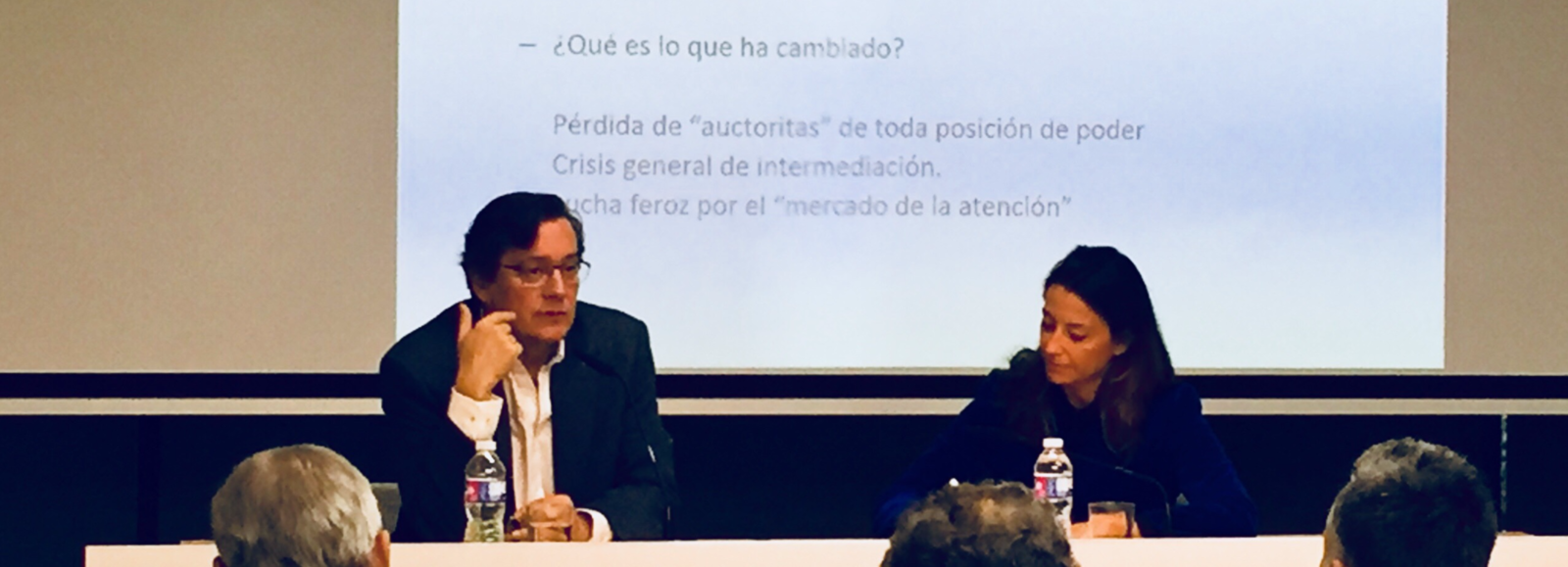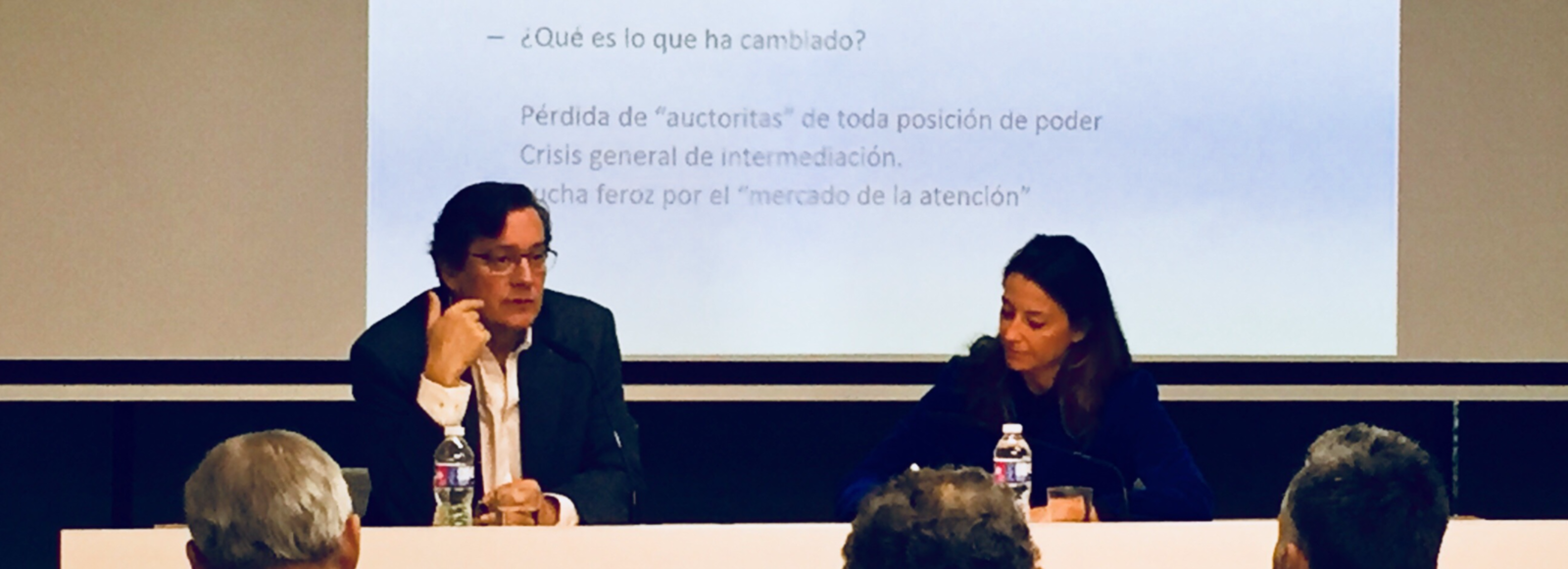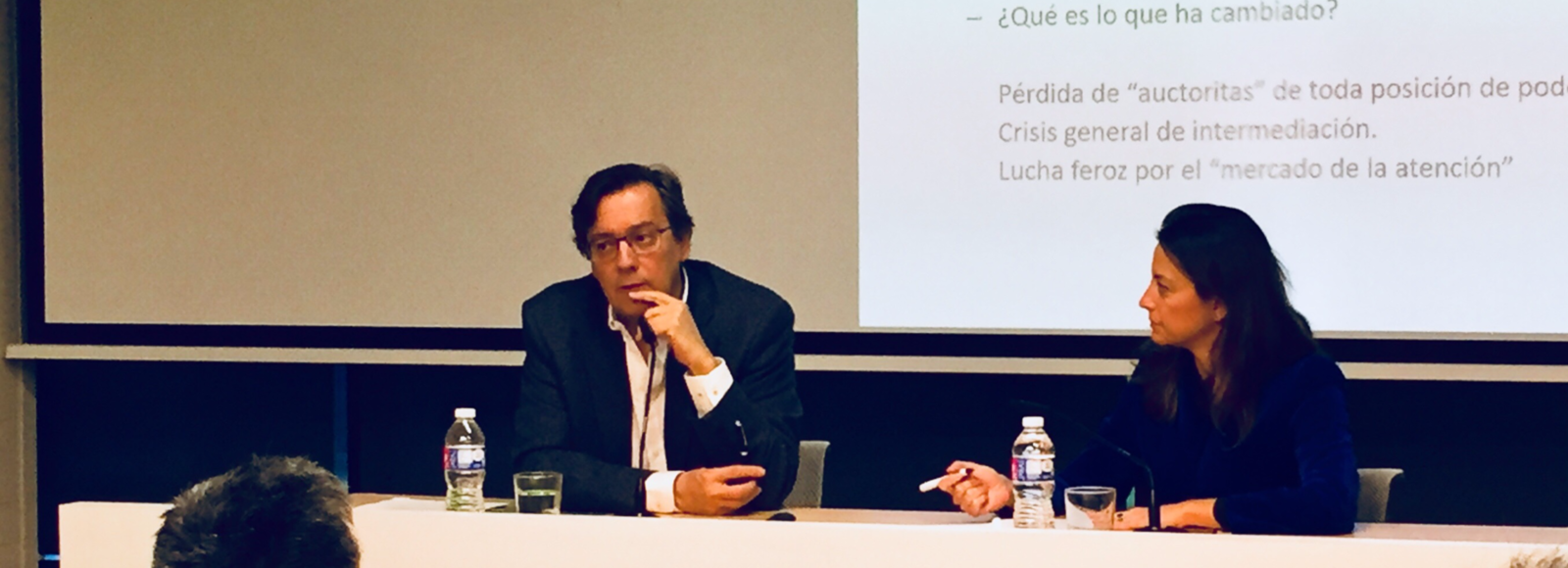05/12/2017
The digital revolution has changed everything. Speakers and audiences have multiplied, there is no clear differentiation between them, and both power and traditional media have lost the “authority” or total credibility they used to enjoy. This has led to a generalized crisis of intermediation and a “fierce fight” for the attention market, where thousands of players are vying for the attention of their followers on Twitter, Instagram, YouTube or whatever channel they use to disseminate their content.
This is how philosopher and professor Fernando Vallespín summarized the current situation of our society where, he says, we have gone from a democracy of parties to a democracy of audiences, a direct consequence of the use and popularization of social networks, which have enabled access to an unlimited number of versions of reality.
Fernando Vallespín, political scientist and analyst in several media has been this month’s guest at the breakfast “Las mañanas del mañana” of digitalES.
Vallespin made these statements in the Cycle of Breakfasts organized by the Digital Association, in which various technicians and thinkers provide their vision and knowledge about the Digital Transformation and various aspects of it. On this occasion, the political scientist reflected on the changes that digitalization has brought to democracy.
In his opinion, the multiplication of speakers or differentiated versions of reality has led to the loss of the “common public world”, where until now the traditional press acted as gate keeper, defining what was and what was not news. In addition, he said, the perception of time has changed. “Now everything gets old faster, it lasts less. Trending topics don’t last a single afternoon,” he emphasized.
In his presentation he also spoke about a very topical issue in recent times: post-truth. “Lying has always existed. The qualitative change is that lying used to be penalized. Now that connection has been broken, if one of my people tells me lies, it doesn’t matter,” he said.
“When opinions are loaded with feelings it is difficult to renounce them, because they are part of our identity,” said Vallespin, who stated that in today’s society “narcissism can to civic conscience, since having an opinion equals freedom.”
“There is a general desire for recognition and not everyone gets it. That produces a systematic persecution of the elites. Resentment is today the dominant passion and that only makes sense in societies where equality is preached,” said Vallespin.
However, he insisted that the results of the technological revolution are neither good nor bad, but ambivalent. “It’s the same thing that happens with swords, they can be used to defend crippled old ladies or to assassinate.”
“The biggest challenge is in the educational field. Memory is no longer so important; what is essential is to know how to use tools that allow us to know everything and to know how to manage this knowledge while keeping our critical capacity intact,” he concluded.












